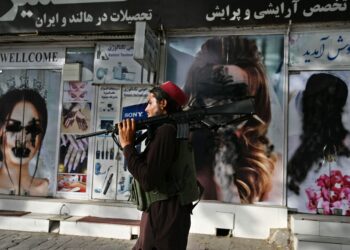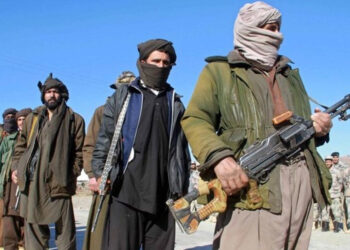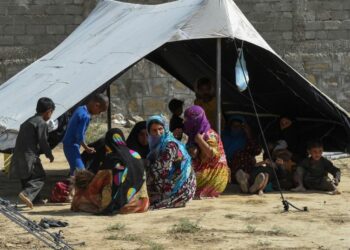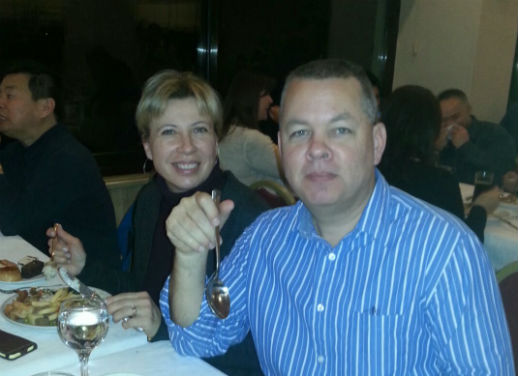The doctrine referred to by national security scholars as “strategic depth” is the driving force behind why Islamabad supports extremist groups to destabilize Afghanistan. Pakistani generals, according to this doctrine, believe they must control Afghanistan in case there is ever another war with India.
Hence, Pakistan will never abandon assets like the Taliban, including the Haqqani Network, so long as it views India as an existential threat. History has shown that the Pakistanis will turn up the heat via their proxies as bilateral ties between New Delhi and Kabul grow stronger.
This is why many experts believe the key to peace in Afghanistan is Indo-Pakistani rapprochement. However, the Trump administration appears to think the exact opposite based on the war strategy unleashed by the president earlier this week.
During a nationally-televised address on Monday, President Donald J. Trump called on Pakistan to address terrorist safe havens while sending overtures to India that the United States wants to enhance bilateral ties.
Worth quoting in full is Mr. Trump’s insinuation that Pakistan’s harboring of terror groups could ignite a nuclear war.
“For its part, Pakistan often gives safe haven to agents of chaos, violence, and terror,” Mr. Trump said at Ft. Myer in Arlington, Virginia. “The threat is worse because Pakistan and India are two nuclear-armed states whose tense relations threaten to spiral into conflict. And that could happen.”
Former State Department Political Officer Matthew Hoh told The Globe Post that he found Mr. Trump’s rhetoric towards Pakistan alarming.
“Particularly troubling to me were President Trump’s words about nuclear weapons at the end of his speech – I viewed those as a threat directed toward Pakistan,” Mr. Hoh said. “I am greatly worried that we have a President of the United States, who is easily influenced, making such threats to Pakistan while giving fairly overt backing to India.”
Mr. Hoh also indicated he is worried that India or elements within India may “act upon” Trump’s words, viewing the president’s message as a bonding of an alliance.
“Further, we have some very aggressive generals in the most senior civilian positions in the U.S. government now,” Mr. Hoh said. “We also have a U.S. military that, since the Obama Administration, has been working on a new generation of smaller, usable nuclear weapons. All of this can lead very quickly to disaster.”
At a press briefing on Wednesday, State Department spokesperson Heather Nauert seemed to try to lower the temperature a few notches, saying the United States encourages India and Pakistan to engage in direct dialogue to reduce tensions.
Tom Gouttierre, a former State Department political affairs officer who used to head the Center for Afghanistan Studies at the University of Nebraska Omaha (UNO), told The Globe Post that while he appreciated Trump making a commitment to Afghanistan, the address lacked some key elements regarding a regional solution.
“What was missing, obviously, is recognition of the fact that those two nations, Pakistan and India, are using Afghanistan to wage a proxy war against each other,” Mr. Gouttierre said. “It is important that they stop it. Unless they do there is no chance for security in Afghanistan.”
Moreover, Trump’s address on Monday night, Mr. Gouttierre continued, did not “recognize the complexity” of the relationship between India and Pakistan enough to render his message credible across the board.
Mr. Gouttierre also said he feared that the US State Department would make the same mistake as past administrations by appointing a Special Representative to Afghanistan and Pakistan.
“What is necessary is a [US] special envoy between Pakistan and India,” Mr. Gouttierre suggested. “That’s where the whole thing gets resolved.”
Authors Elizabeth Gould and Paul Fitzgerald, the first journalists allowed back into Afghanistan by the communists during the 1980s, told The Globe Post that the legacy of the current situation goes back almost 200 years to the East India Company and the British Empire’s goals in Afghanistan.
“The British could never break Afghanistan so the empire brought in its surrogates in Saudi Arabia and Egypt. Pakistan has been the conduit for this agenda,” Ms. Gould said. “The problem is in London, Islamabad and Washington, not Kabul.”
Mr. Fitzgerald added that “switching to India is just another move in the Great Game to break the local power structure whatever it might be.”
University of Arizona History Professor David Gibbs decried Trump’s decision not to pull out of Afghanistan considering the U.S. public “is clearly wearied of the whole project.”
“In addition, there is a strong implication that the U.S. will augment its relationship with India, presumably as a means of pressuring Pakistan to cease its covert support for extremist groups in Afghanistan,” Mr. Gibbs told The Globe Post.
For the most part, he added, the Trump strategy is a continuation of longstanding U.S. policy since 2001 to use American forces to “prop up” an unpopular Afghan central government indefinitely “with little prospect of anything that can be presented as a military victory, or even political success.”
Until Trump grasps the concept of “strategic depth” and the downside of alienating Islamabad while courting India, Pakistan will continue to destabilize Afghanistan to a degree just short of risking full blown confrontation with the United States. Or, as Pakistani President General Zia was wont to say: “Keep the pot boiling, but not boil over.”




















